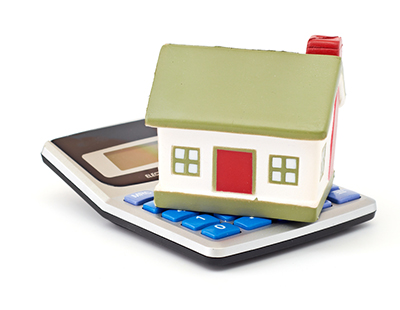New analysis by Rightmove is tracking first-time buyer affordability over the last 10 years - and it shows why so many have to rent rather than purchase.
This month, average monthly mortgage payments (£901) overtake average monthly rental payments (£887).
However, the data shows that over the last 10 years, the gap has narrowed, meaning it is no longer notably cheaper to rent in terms of monthly outgoings.
This new affordability analysis is based on a household taking out a 90 per cent loan-to-value mortgage, at the average two-year fixed interest rate, and looks at a typical first-time-buyer home of two bedrooms or fewer, and the average monthly equivalent rental payments.
The average monthly mortgage payment for a typical first-time-buyer home has increased by 13 per cent (or £100) since December last year following four interest rate rises, although this is only 11 per cent (or £87) higher than a decade ago.
Rightmove says it illustrates that a decade of historically low interest rates have effectively compensated for rising house prices in terms of monthly outgoings on a mortgage.
By contrast, equivalent monthly rental payments are 40 per cent higher than 10 years ago, as tenants feel the full effect of rising costs. Rents are currently rising at the fastest pace that Rightmove has ever recorded.
The data also looks at the ability for a first-time buyer to borrow enough from a lender to purchase a first home.
For a person looking to buy on their own, on the national average full-time salary, borrowing 4.5 times their income, ten years ago they would have needed to find a 25 per cent deposit (£35,053) to afford a typical first-time buyer home. Today they would need a 34 per cent deposit (£74,402).
These are national averages and it will vary across the UK, however at a national level it means that a person buying on their own on an average salary, looking to buy an average first-time buyer home, now needs a deposit 112 per cent higher than a decade ago.
This shows that while average monthly payments for a first-time buyer on their mortgage have remained relatively stable over time due to low interest rates, it has become more difficult to raise the increasingly large deposit needed to cover the gap between the price of a first home and what one can borrow.
Two people buying together on the average salary should still be able to afford a first-time buyer home if they have saved a 10% deposit, although that deposit size has increased from £14,269 to £22,312, a jump of 56 per cent.
Tim Bannister - now renamed Rightmove’s director of property science - says: “This new analysis shows how it has become increasingly difficult for an average first-time buyer to afford a home on their own.
“The historic average mortgage payments for a first home provide some good context to the current backdrop of rising interest rates and help explain why so many people take out fixed-rate mortgages.
“As interest rates are predicted to rise further during the course of 2022, many buyers will be looking to lock in mortgage deals now before further rate rises.
“With so many variables affecting house prices and affordability, it’s a reminder that the market is extremely difficult to predict, and those looking to buy will be prioritising their own needs and what they can afford rather than waiting to try and time the market.”
We're excited to announce that we're working on building a shiny new website for readers of Landlord Today! As part of this process, commenting on articles will be temporarily disabled. We look forward to sharing our new and improved Landlord Today website with you shortly!






.jpg)


.png)

(1).png)







.jpg)






%20(002).png)





